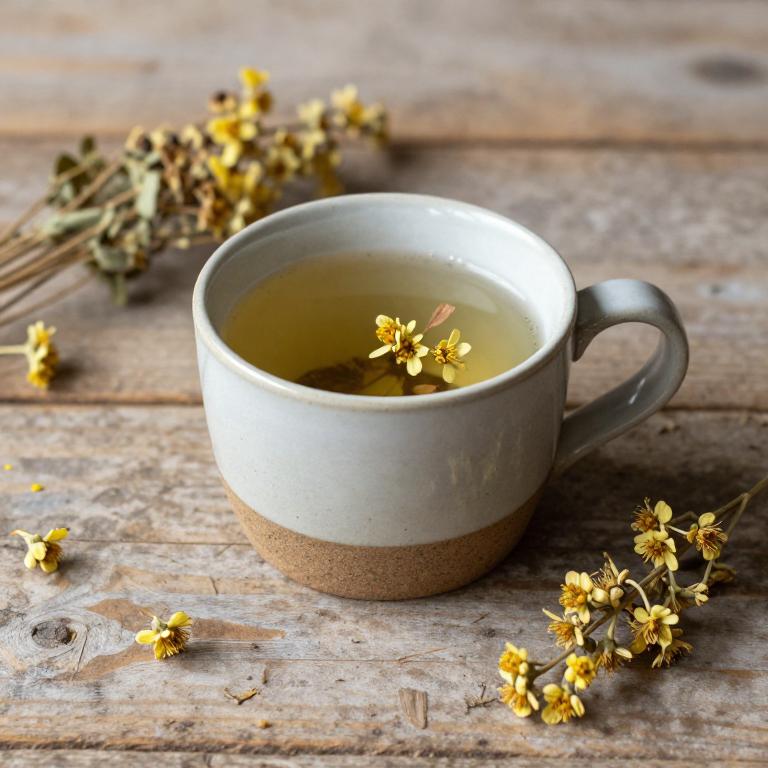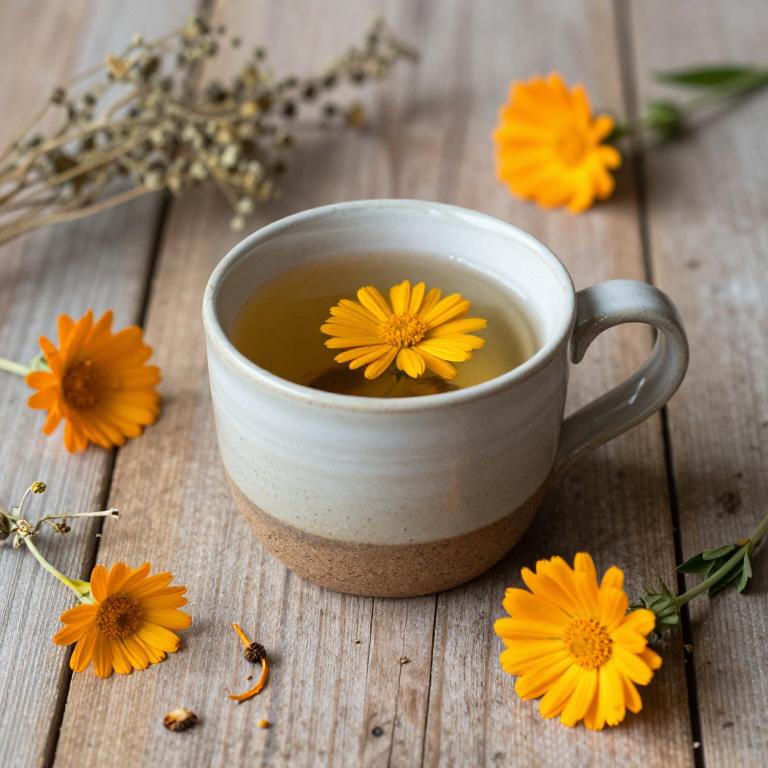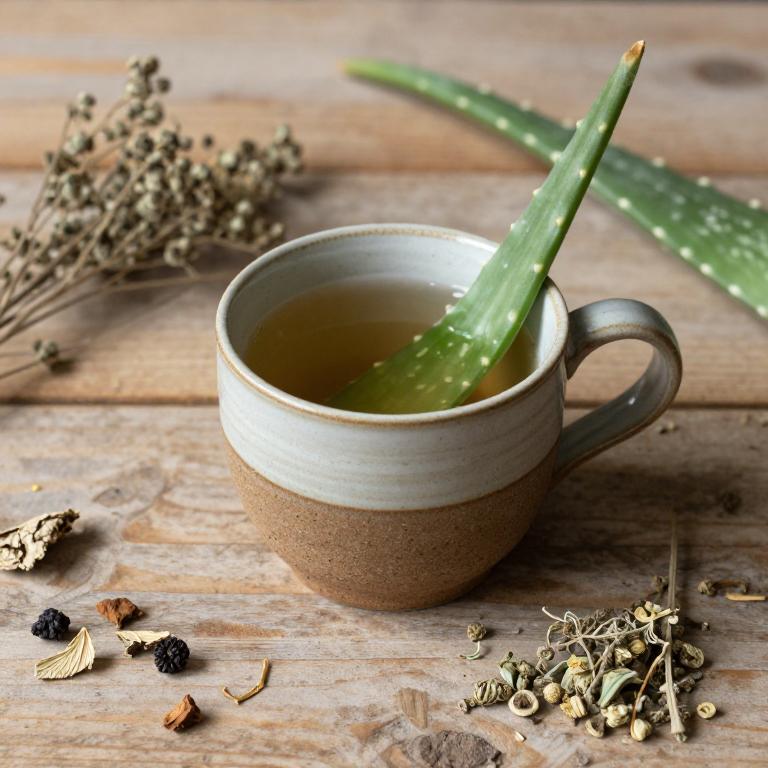10 Best Herbal Teas For Chapped Lips

Herbal teas can be a gentle and effective remedy for chapped lips, as they contain natural ingredients that soothe and moisturize the skin.
Chamomile, lavender, and calendula are popular herbs known for their anti-inflammatory and healing properties, making them ideal for use in lip balms or as a cool compress. To prepare a herbal tea for chapped lips, simply steep a few dried herbs in hot water and let it cool before applying it to the lips with a clean cloth or using it as a lip balm base. Regular application can help reduce dryness, irritation, and promote healing without the use of harsh chemicals.
This natural approach not only addresses the symptoms of chapped lips but also offers a calming and aromatic experience.
Table of Contents
- 1. Chamomile (Matricaria chamomilla)
- 2. Stinging nettle (Urtica dioica)
- 3. English lavender (Lavandula angustifolia)
- 4. Dog rose (Rosa canina)
- 5. Lemon balm (Melissa officinalis)
- 6. Camellia (Camellia sinensis)
- 7. Ginger (Zingiber officinale)
- 8. Marigold (Calendula officinalis)
- 9. St. john's wort (Hypericum perforatum)
- 10. Aloe vera (Aloe barbadensis)
1. Chamomile (Matricaria chamomilla)

Matricaria chamomilla, commonly known as chamomile, is a popular herbal tea often used to soothe and heal chapped lips due to its anti-inflammatory and moisturizing properties.
The tea contains compounds like bisabolol and chamazulene, which help reduce irritation and promote skin healing. When applied topically, chamomile tea can provide a gentle, calming effect on dry, cracked lips, offering relief from discomfort. To use it, simply brew a cup of chamomile tea, let it cool, and apply it to the lips with a cotton ball or directly dab it on.
Regular use of chamomile herbal tea can help hydrate and protect the lips, making it a natural and effective remedy for chapped lips.
2. Stinging nettle (Urtica dioica)

Urtica dioica, commonly known as stinging nettle, is a versatile herb that has been traditionally used for its soothing and healing properties.
When brewed into a herbal tea, it can provide relief for chapped lips due to its high concentration of antioxidants and anti-inflammatory compounds. The tea works by gently moisturizing the lips and reducing irritation, making it a natural alternative to commercial lip balms. To prepare the tea, fresh or dried stinging nettle leaves are steeped in hot water for several minutes, and the cooled liquid is then applied to the lips using a clean cloth or cotton swab.
While generally safe, it is advisable to perform a patch test before using it extensively, as some individuals may experience an allergic reaction to the plant.
3. English lavender (Lavandula angustifolia)

Lavandula angustifolia, commonly known as English lavender, is a popular herb used in herbal teas for its soothing and healing properties.
When brewed into a tea, lavender can help moisturize and protect chapped lips by reducing inflammation and promoting skin repair. The calming scent of lavender also offers a pleasant and relaxing experience, making it an appealing choice for those seeking natural remedies. To use lavender tea for chapped lips, it can be applied topically after cooling, or consumed as a warm beverage to support overall skin health.
Regular use of lavender-infused teas may help maintain lip hydration and prevent future dryness.
4. Dog rose (Rosa canina)

Rosa canina, also known as rosehip, is a popular herbal ingredient used in teas to soothe and nourish chapped lips.
The tea is rich in antioxidants, vitamins, and essential oils that help to hydrate and repair dry, cracked skin on the lips. Its gentle, warming properties make it an ideal remedy for those experiencing winter-related lip dryness or irritation. To prepare the tea, simply steep a few rosehip berries in hot water for several minutes, then allow it to cool before applying it to the lips with a clean cloth or cotton swab.
Regular use of rosehip herbal tea can help restore the natural moisture balance of the lips and promote a healthier, more supple appearance.
5. Lemon balm (Melissa officinalis)

Melissa officinalis, commonly known as lemon balm, is a herb often used in herbal teas to soothe and moisturize chapped lips.
Its mild, calming properties help reduce irritation and promote healing of dry, cracked skin on the lips. Lemon balm tea can be applied directly to the lips or used as a rinse to provide a gentle, nourishing effect. The tea contains antioxidants and essential oils that help hydrate and protect the delicate skin of the lips.
Regular use of melissa officinalis herbal tea can offer a natural and effective remedy for maintaining lip health and comfort.
6. Camellia (Camellia sinensis)

Camellia sinensis, the plant from which green and black teas are derived, is also used in herbal teas that can help soothe and nourish chapped lips.
These teas are rich in antioxidants and polyphenols, which have anti-inflammatory properties that can reduce irritation and dryness. When applied topically or consumed internally, camellia sinensis herbal teas may promote hydration and repair of the lip skin. However, it is important to note that these teas are not a substitute for lip balms and should be used as a complementary remedy.
Always consult a healthcare professional before using herbal remedies, especially if you have sensitive skin or existing lip conditions.
7. Ginger (Zingiber officinale)

Zingiber officinale, commonly known as ginger, is a popular herbal ingredient used in teas to soothe and nourish chapped lips.
The warming properties of ginger help stimulate blood circulation to the lips, promoting healing and reducing dryness. When brewed into a herbal tea, ginger can provide a gentle exfoliating effect, removing dead skin cells and revealing smoother, healthier lip tissue. Many people find that drinking ginger tea regularly helps maintain lip hydration and prevent future chapping.
However, it’s important to note that topical application of ginger may cause irritation for some individuals, so it’s best to consult a healthcare provider before using it for lip care.
8. Marigold (Calendula officinalis)

Calendula officinalis, commonly known as pot marigold, is a popular herb used in herbal teas to soothe and heal chapped lips.
Its anti-inflammatory and antimicrobial properties help reduce redness, irritation, and infection in cracked or dry lip tissue. When brewed into a mild tea, calendula can be applied topically as a compress or used as a rinse to promote healing and hydration. Many people find it to be a gentle, natural alternative to commercial lip balms, especially for those with sensitive skin.
Regular use of calendula tea can improve the overall health and appearance of the lips, leaving them smoother and more protected.
9. St. john's wort (Hypericum perforatum)

Hypericum perforatum, commonly known as St. John's wort, is often used in herbal teas to soothe and heal chapped lips due to its anti-inflammatory and antimicrobial properties.
The tea is believed to help reduce irritation and promote the healing of dry, cracked skin on the lips. When brewed properly, it can provide a gentle, calming effect that may help alleviate discomfort associated with lip chapping. However, it is important to note that St. John's wort can interact with certain medications, so it should be used with caution and under the guidance of a healthcare professional.
Regular use of this herbal tea may contribute to maintaining lip health and preventing future episodes of chapping.
10. Aloe vera (Aloe barbadensis)

Aloe barbadensis, commonly known as aloe vera, is often used in herbal teas to soothe and hydrate chapped lips due to its high content of vitamins, minerals, and antioxidants.
These teas can help moisturize the lips by providing a natural source of hydration and promoting skin healing. The anti-inflammatory properties of aloe vera may also reduce irritation and redness associated with dry or cracked lips. While aloe vera tea is generally safe for topical use, it is important to ensure that the product is specifically formulated for external application.
Regular consumption of aloe-based herbal teas may support overall skin health and offer a gentle, natural remedy for lip care.